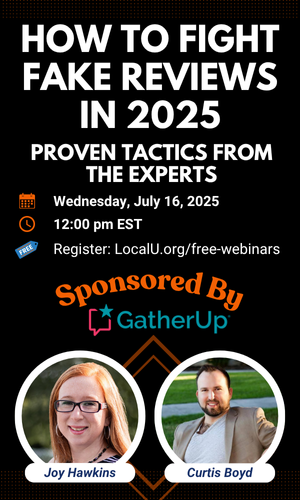Eric Rohrback
Member
- Joined
- Oct 3, 2012
- Messages
- 1,027
- Solutions
- 1
- Reaction score
- 348
https://www.google.com/patents/US7827176
The way I?m interpreting is that your ?friends? or people you follow online can influence your search results by their reviews or endorsements. IF Google is using this today (with all patents, it?s tough to know what?s being used today), it creates a whole new importance for social media and reviews. I?m thinking if your local search results can be personalized/influence by others in social networks (I?m assuming Google is referring to G+, since it references extracting info from a database), then Google reviews could be one of the most important local factors.
With this mindset, you would need to really push review gathering/monitoring for local clients. If you get even one person to review, you could influence everyone they're connected with.
There is also a section to account for a degree of separation between contacts. This could even spill over to related associations or groups users are involved in. If user 1 makes a review, user 2 is a close friend and will see a result set with the review. We also have user 3, who is friends with user 2 but doesn't know user 1. Depending on the connection level (closer friends or business associates benefit higher), they will see the adjusted search result from the review too.
The biggest reason why this patent got me thinking is because I always looked at reviews as an A to B benefit. In reality it could be an A to C depending on how the business is connected. It's not just about getting reviews or endorsements, it's about the profile being active in communities, sharing content (relevant content), and getting others to promote. It's not just about getting people to review/promote the business, it's about what groups they're in and how the message can spread to the group.
There's a lot to think about with this patent. It's not necessarily changing a lot of strategies in place, but opens up a different way of seeing the impact.
Also... who knows... maybe some promotion or review for your business could reach Kevin Bacon. 6 degrees of separation could lead to him becoming your next customer
The way I?m interpreting is that your ?friends? or people you follow online can influence your search results by their reviews or endorsements. IF Google is using this today (with all patents, it?s tough to know what?s being used today), it creates a whole new importance for social media and reviews. I?m thinking if your local search results can be personalized/influence by others in social networks (I?m assuming Google is referring to G+, since it references extracting info from a database), then Google reviews could be one of the most important local factors.
With this mindset, you would need to really push review gathering/monitoring for local clients. If you get even one person to review, you could influence everyone they're connected with.
There is also a section to account for a degree of separation between contacts. This could even spill over to related associations or groups users are involved in. If user 1 makes a review, user 2 is a close friend and will see a result set with the review. We also have user 3, who is friends with user 2 but doesn't know user 1. Depending on the connection level (closer friends or business associates benefit higher), they will see the adjusted search result from the review too.
The biggest reason why this patent got me thinking is because I always looked at reviews as an A to B benefit. In reality it could be an A to C depending on how the business is connected. It's not just about getting reviews or endorsements, it's about the profile being active in communities, sharing content (relevant content), and getting others to promote. It's not just about getting people to review/promote the business, it's about what groups they're in and how the message can spread to the group.
There's a lot to think about with this patent. It's not necessarily changing a lot of strategies in place, but opens up a different way of seeing the impact.
Also... who knows... maybe some promotion or review for your business could reach Kevin Bacon. 6 degrees of separation could lead to him becoming your next customer




